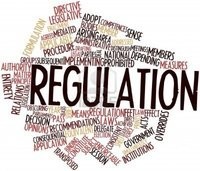Abbreviated approval pathways for biosimilars – biological products that are highly similar to an originator biological with regard to quality, safety and efficacy [1, 2] – were created to foster competition and lower prices for biological treatments. However, these desired effects have not materialized as quickly as expected in either the US or the European Union.
Scientific, legal and regulatory challenges facing biosimilars development
Biosimilars/Research
|
Posted 11/12/2020
 0
Post your comment
0
Post your comment

Challenges that could influence biosimilar development include the expensive and complex manufacturing process required to produce biosimilars [3]. Biosimilars developers must reverse-engineer the originator product, which can be protected by trade secrets and patents, as well as meet more rigorous standards for approval than those required for the approval of small-molecule generics [4, 5].
Druedahl et al. [6] investigated key scientific, legal and regulatory challenges in biosimilars development and their effect on biosimilar market entry. Through qualitative interviews, they identified the perceptions that European national medicines regulators and pharmaceutical manufacturer employees or consultants with experience in biologicals had regarding the challenges for biosimilars development.
The study participants described trade secrets as a surmountable barrier to biosimilar development, but patents protecting the originator biological as a key obstacle. This – the study participants explained – was due to numerous patents protecting each originator biological, which must be navigated around and are difficult to identify. The study participants further identified a lack of alignment between regulators’ desire for flexibility and companies’ need for certainty concerning how to meet approval standards.
Druedahl et al. conclude that measures to increase the transparency of biological patent landscapes, as well as the clarity and uniformity of regulatory requirements, could help facilitate biosimilars development to the benefit of patients and healthcare systems [6].
Conflict of interest
The authors of the research paper [6] reported conflict of interest, including being an employee of the Copenhagen Centre for Regulatory Science (CORS). CORS is a cross-faculty university-anchored institution involving various public (Danish Medicines Agency Copenhagen University) and private (Novo Nordisk, Lundbeck, Ferring Pharmaceuticals, LEO Pharma) stakeholders, as well as patient organizations (Rare Diseases Denmark). For full details of the authors’ conflict of interest, see the research paper [6].
Abstracted by Louise C Druedahl, MScPharm, PhD candidate. Copenhagen Centre for Regulatory Science (CORS)/Centre for Advanced Studies in Biomedical Innovation Law (CeBIL), University of Copenhagen, Denmark.
Related articles
Do patent strategies delay market entry of biosimilar monoclonal antibodies in Europe?
The sluggish US biosimilars market
|
LATIN AMERICAN FORUM We are pleased to announce, that starting January 2021, the launch of a new section on GaBI Online, the ‘Latin American Forum’ (in Spanish) featuring the latest news and updates on research and developments in generic and biosimilar medicines in Latin America. Register to receive the GaBI Latin American Forum newsletter. Inform colleagues and friends of this new initiative. |
References
1. GaBI Online - Generics and Biosimilars Initiative. EU guidelines for biosimilars [www.gabionline.net]. Mol, Belgium: Pro Pharma Communications International; [cited 2020 Dec 11]. Available from: www.gabionline.net/Guidelines/EU-guidelines-for-biosimilars
2. GaBI Online - Generics and Biosimilars Initiative. US guidelines for biosimilars [www.gabionline.net]. Mol, Belgium: Pro Pharma Communications International; [cited 2020 Dec 11]. Available from: www.gabionline.net/Guidelines/US-guidelines-for-biosimilars
3. GaBI Online - Generics and Biosimilars Initiative. Barriers to the market access of biosimilar monoclonal antibodies [www.gabionline.net]. Mol, Belgium: Pro Pharma Communications International; [cited 2020 Dec 11]. Available from: www.gabionline.net/Biosimilars/Research/Barriers-to-the-market-access-of-biosimilar-monoclonal-antibodies
4. Price WN 2nd, Rai AK. Drug Development. Are trade secrets delaying biosimilars? Science. 2015;348(6231):188-9.
5. Price WN 2nd, Rai AK. How logically impossible patents block biosimilars. Nat Biotechnol. 2019;37(8):862-3.
6. Druedahl LC, Almarsdóttir AB, Kälvemark Sporrong S, et al. A qualitative study of biosimilar manufacturer and regulator perceptions on intellectual property and abbreviated approval pathways. Nat Biotechnol. 2020;38(11):1253-6.
Permission granted to reproduce for personal and non-commercial use only. All other reproduction, copy or reprinting of all or part of any ‘Content’ found on this website is strictly prohibited without the prior consent of the publisher. Contact the publisher to obtain permission before redistributing.
Copyright – Unless otherwise stated all contents of this website are © 2020 Pro Pharma Communications International. All Rights Reserved.
News
FDA approves Poherdy (first interchangeable pertuzumab) and Armlupeg (pegfilgrastim) biosimilars
EMA recommends approval for insulin glargine biosimilar Ondibta and denosumab biosimilar Osqay
General
Samsung Bioepis wins Pyzchiva case; Regeneron patent rulings threaten foreign biosimilars
Chinese biosimilars go global: growth, partnerships, and challenges
What is the future for the US biosimilar interchangeability designation

Biosimilars/Research Posted 05/06/2025
Biosimilar clinical efficacy studies: are they still necessary?

Biosimilars/Research Posted 27/05/2025
The best selling biotechnology drugs of 2008: the next biosimilars targets








Post your comment